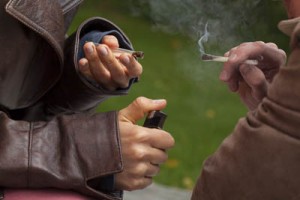 It’s not hard to find controversial opinions about America’s war on drugs. The dialogue on the subject gets passionate, argumentative and even downright combative at time. Some people argue that we need a highly militarized solution to the trafficking of drugs. Other people say that drugs should be legalized, that this will somehow cure the problem.
It’s not hard to find controversial opinions about America’s war on drugs. The dialogue on the subject gets passionate, argumentative and even downright combative at time. Some people argue that we need a highly militarized solution to the trafficking of drugs. Other people say that drugs should be legalized, that this will somehow cure the problem.
Neither one of these seem like solutions. We do know one thing, however: the most vital war on drugs is fought at home. Parents fight this war to protect their children.
Outside the home, most children of twelve and older will see some kids their age and older using drugs or drinking. While they are in single digits, they may hear from another child how cool it is to find spray cans or cleaning supplies around the home and inhale the fumes. The chance that they will someday walk into a home where there are drunk or stoned young people is about 100%.
In 23 US states, they probably see marijuana dispensaries in their home towns. In two states (with more coming soon) they may walk past people smoking pot on the street. There have been hundreds of movies and television shows produced about people drinking and using drugs and there’s going to be more.
Hardly a week goes by that I don’t see another story about a teen who lost his life to pills, inhalants, heroin, alcohol or synthetics. In one recent story, nineteen-year-old Connor Eckhardt went into a coma and later died after one hit of Spice – referred to as synthetic marijuana. That’s the kind of danger our kids and young adults are facing.
Fighting the Drug War in the Home
The most important place for this drug war to be fought is in the home and the most important players in this war are mom, dad, grandparents and other family members.
Many parents think that the schools are going to handle all the drug prevention needed for their children. But school drug education, no matter how good, must be supported by an anti-drug message in the home.
One of the most important messages in this war is the example set by parents and other adults in or around the home. Prescription drugs must never be used unnecessarily, illicit drugs must be completely absent and alcohol must be used in moderation. It should be made clear to all young people that the expectation is that they will never touch a drug or alcohol through age 21. According to the National Center on Addiction and Substance Abuse, if they make it to 21 without using drugs or alcohol, they are virtually certain to never have a problem with one of these substances.
Parents need to know more than their children about drugs. That’s why we have hundreds of educational articles on drugs on our website. We know how hard it is to keep up with all the drugs making the rounds out there. Your knowing the dangers of each and explaining them to your children will go a long way toward protecting them. At the end of this article you’ll find links to some of these resources.
Someone recently said that protecting kids from drugs is not “one and done.” In other words, it’s not one conversation about drugs and that’s all that’s needed. The conversations and the education needs to continue.
Helping Young People Take it All In
It’s not the easiest thing to present all these ideas so that young people will accept them. Most kids need your advice and instruction more than they will let on. You may have to provide them with this education and not necessarily look for agreement or a promise to comply. Especially at younger ages, keep things light. At older ages, you’re going to have to be frank about the possibility of death for them or those close to them who might indulge. Start young and continue to educate and support sober decisions until they are 21 years of age.
Even honor students take a single misstep that can result in the loss of dreams of even life. Even productive young people who are close to their parents can fall into this trap. College students leaving home for the first time are seldom prepared for the drug and alcohol using atmosphere that exists in many universities – and that includes the so-called “study drugs” like Ritalin and Adderall. Don’t ever take your child’s ability to make the right decision for granted.
The government will not be able to seize all the drugs coming in the country. Your child’s school will not be able to provide enough drug education to guarantee their safety. Lawmakers and police will not be able to arrest enough drug dealers to keep your city completely safe. That means it is first, last and always about the family.
Grandparents, aunts, uncles, godparents, older siblings, cousins – ensure they are sober if they are going to be around the home. Ensure they are fully on board with this message. The life you save could be that of someone you hold very dear indeed.
In the Narconon Parent Center, you can find many of our booklets and articles to help you in this essential task. http://www.narconon.org/drug-abuse/parent-center.html.
On this page, you can find specific articles about the effects of or signs of use of more than 40 drugs. http://www.narconon.org/drug-abuse/.